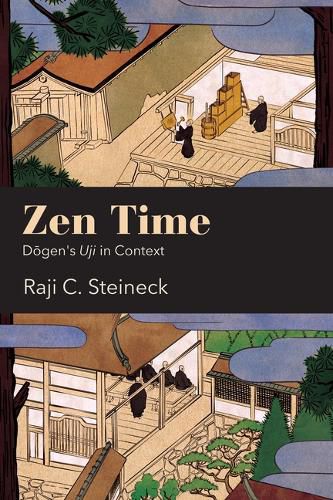Readings Newsletter
Become a Readings Member to make your shopping experience even easier.
Sign in or sign up for free!
You’re not far away from qualifying for FREE standard shipping within Australia
You’ve qualified for FREE standard shipping within Australia
The cart is loading…






Offers a groundbreaking approach to a key text in Zen Buddhism.
In Zen Time, Raji C. Steineck provides a robust contextualization of Dogen's Uji, the most renowned text on time in Zen Buddhism. Situating the text within the historical context of the medieval Zen master's writing, Steineck illustrates how Dogen shaped the rhythm of life in the Zen monastery to actualize his idea that time in itself is salvific. Dogen was meticulous in his observation of the particulars of each temporal moment, regarding them as an opportunity to bring together interrelated tenets of Buddhist doctrine and practice. In contrast to readings that equate the Zen approach to time with "living the moment" and that pit qualitative understandings of time against quantitative understandings, Steineck shows how Dogen was able to connect time's qualitative and quantitative aspects in a way that, despite its mystical elements, remains instructive in relation to contemporary secular and philosophical discussions. The book includes a translation of Uji in an appendix.
$9.00 standard shipping within Australia
FREE standard shipping within Australia for orders over $100.00
Express & International shipping calculated at checkout
Offers a groundbreaking approach to a key text in Zen Buddhism.
In Zen Time, Raji C. Steineck provides a robust contextualization of Dogen's Uji, the most renowned text on time in Zen Buddhism. Situating the text within the historical context of the medieval Zen master's writing, Steineck illustrates how Dogen shaped the rhythm of life in the Zen monastery to actualize his idea that time in itself is salvific. Dogen was meticulous in his observation of the particulars of each temporal moment, regarding them as an opportunity to bring together interrelated tenets of Buddhist doctrine and practice. In contrast to readings that equate the Zen approach to time with "living the moment" and that pit qualitative understandings of time against quantitative understandings, Steineck shows how Dogen was able to connect time's qualitative and quantitative aspects in a way that, despite its mystical elements, remains instructive in relation to contemporary secular and philosophical discussions. The book includes a translation of Uji in an appendix.